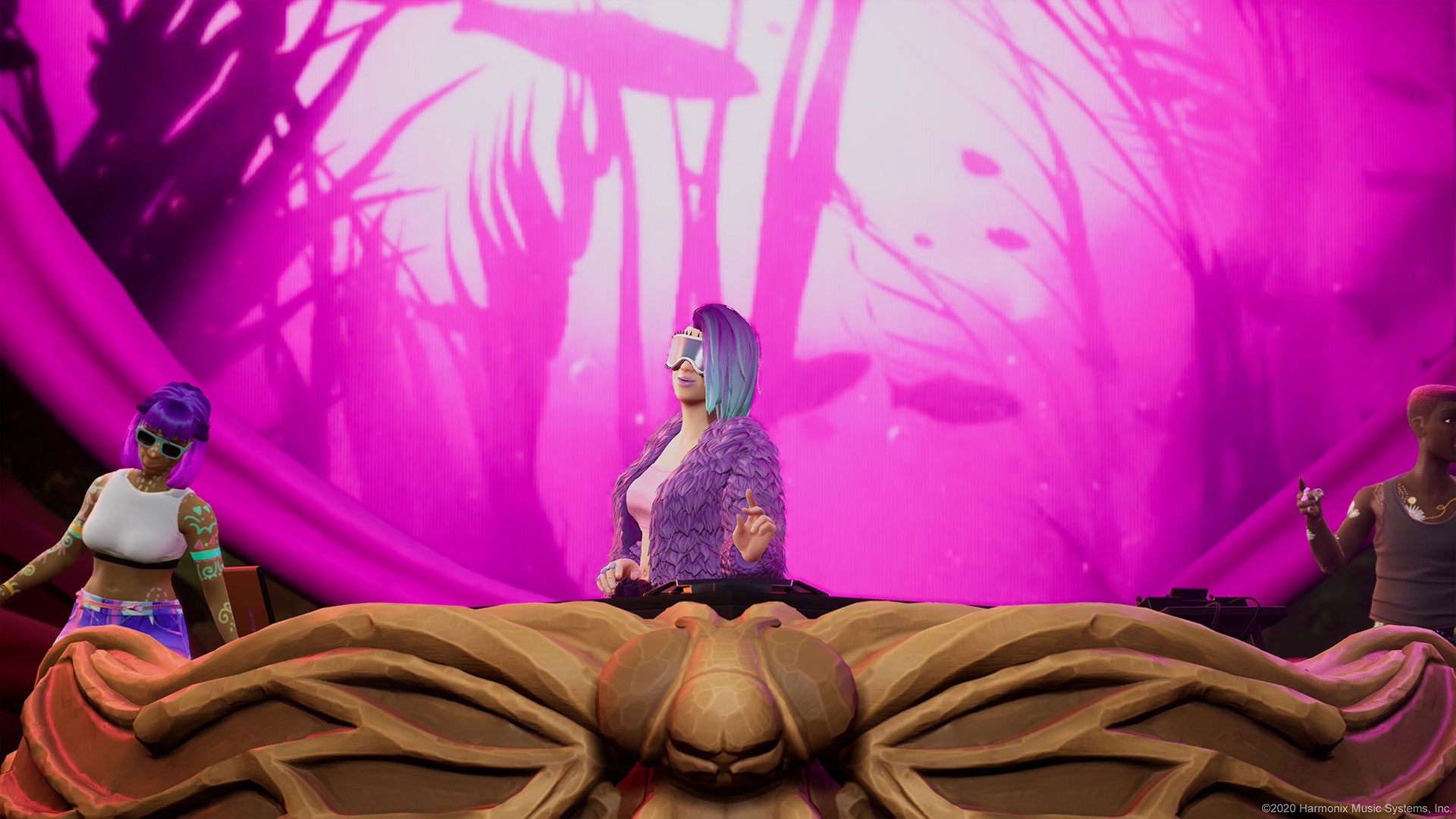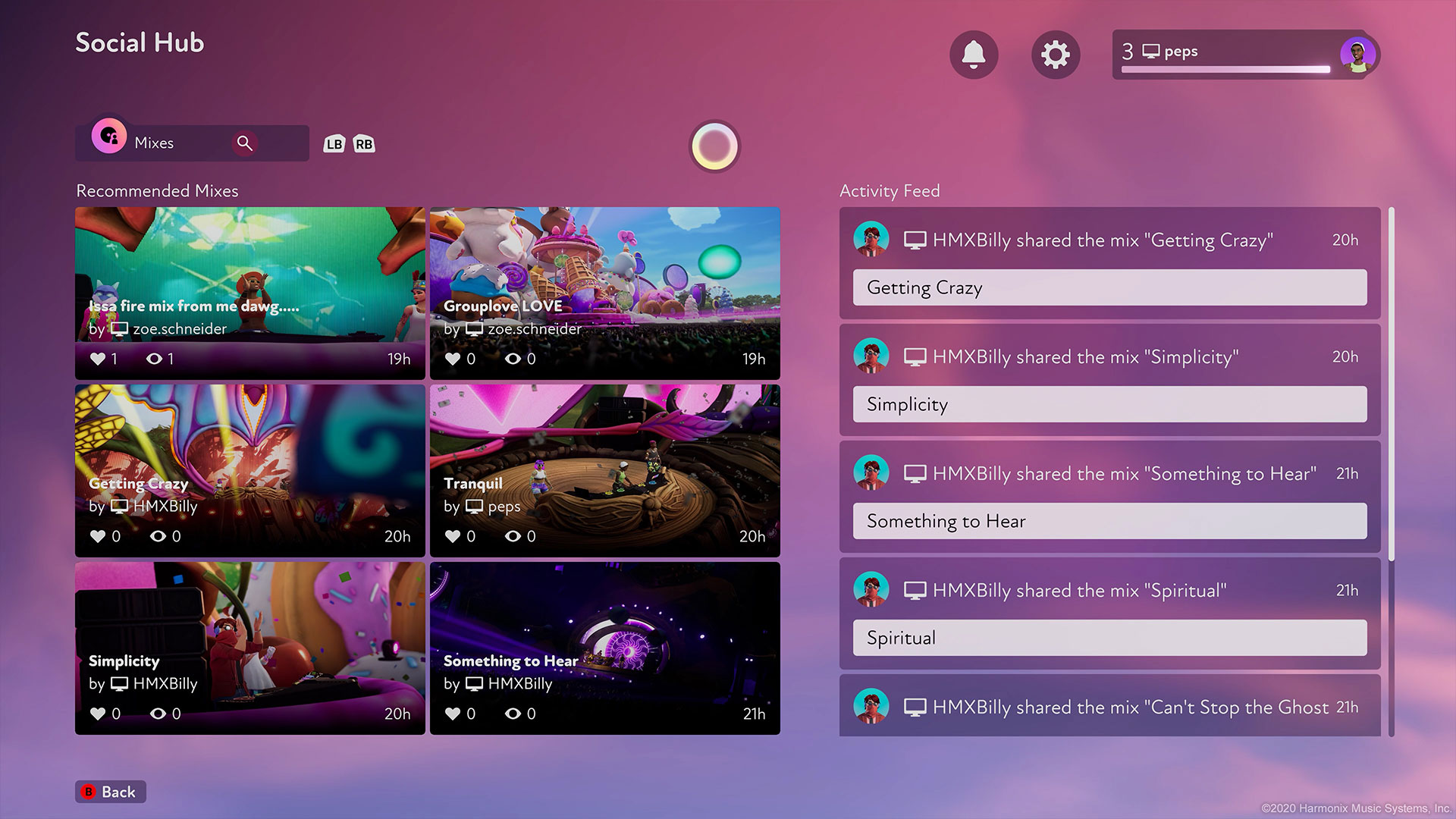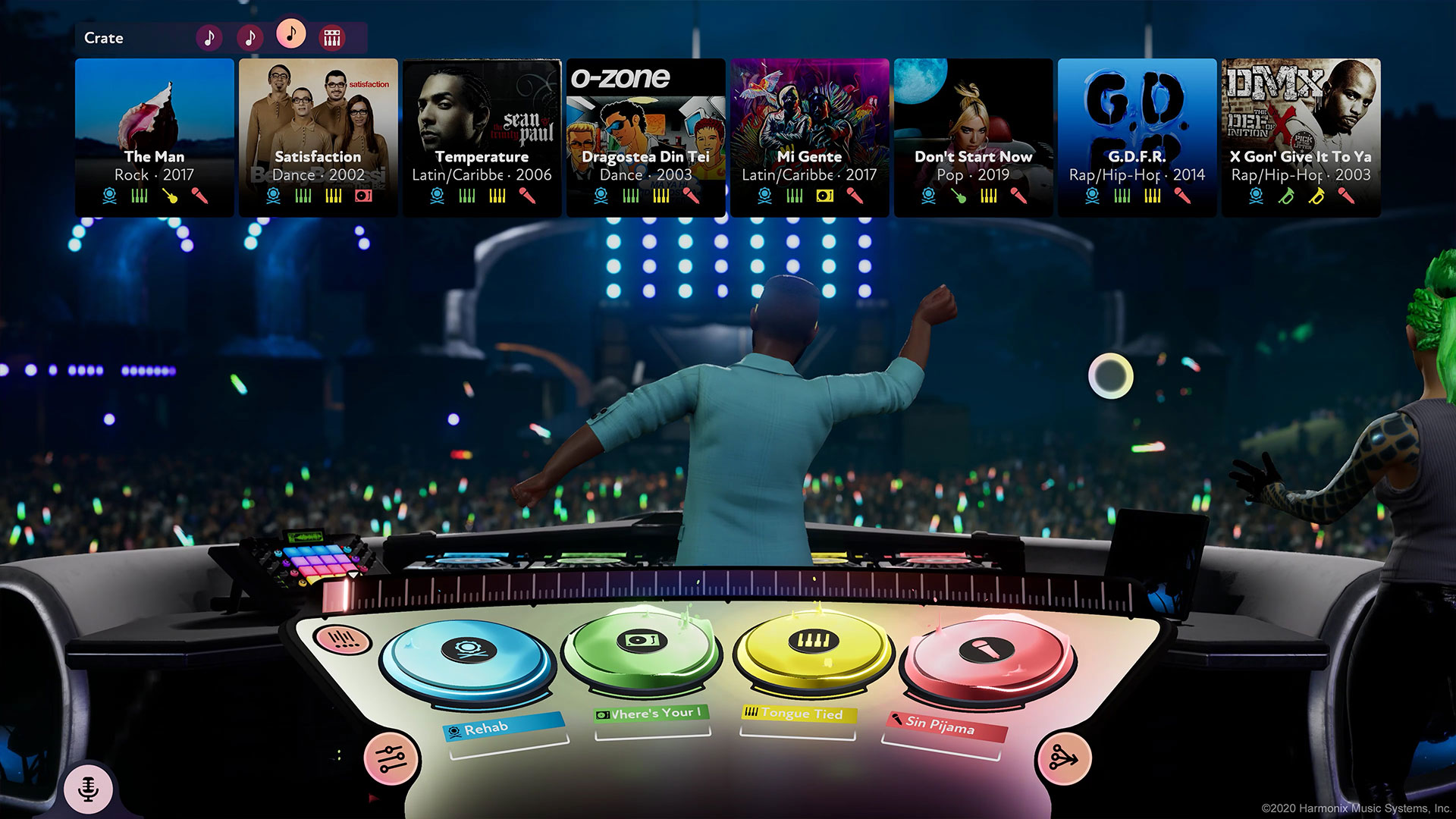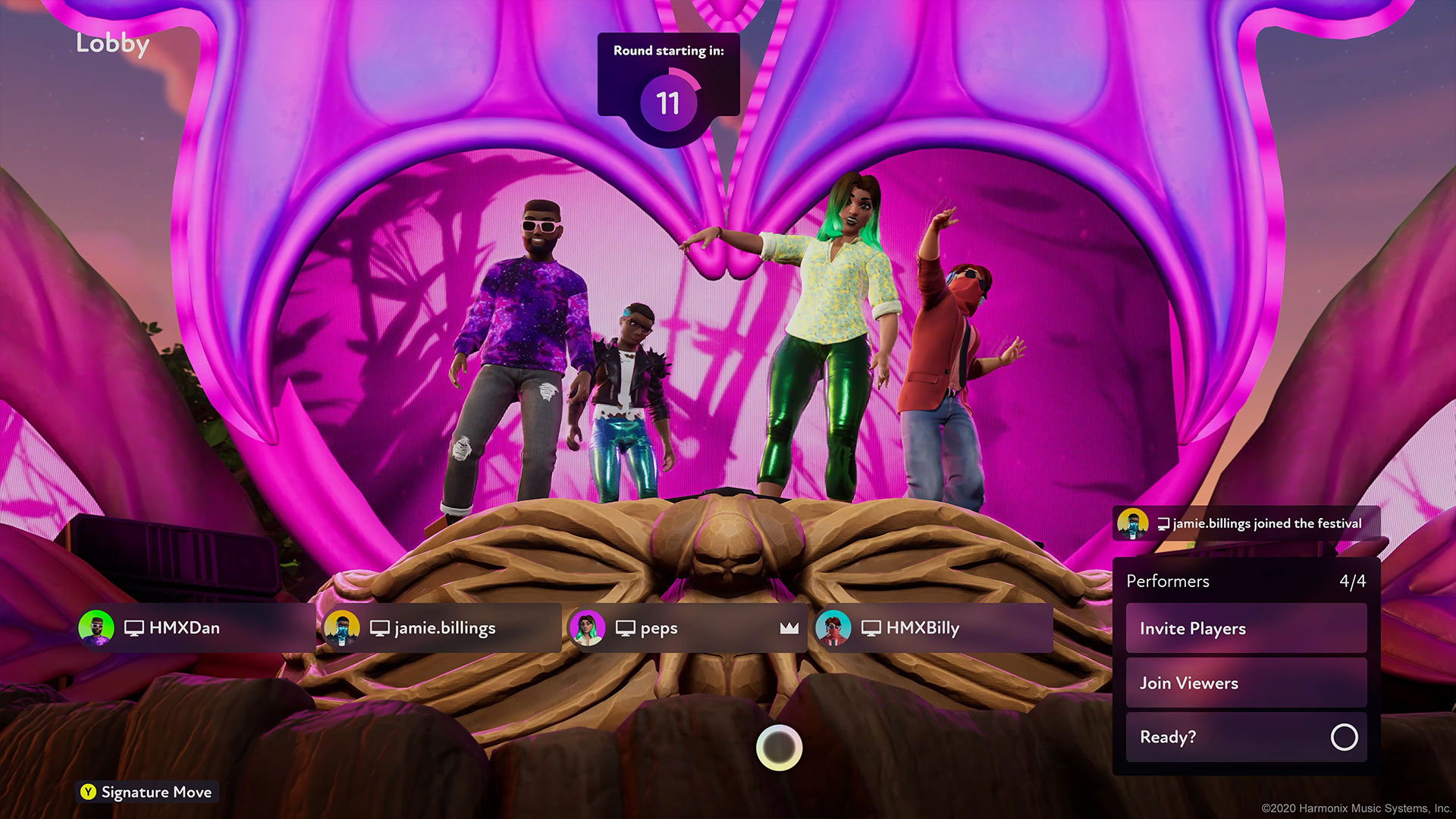
I need to start this off with an apology to the dev team at Harmonix. In my latest hands-on with Fuser, where I got to mess around in Freestyle mode and upload some of my mixes to the game's social tab, they might have come across my attempt to make an eerie rendition of Benny Benassi's Satisfaction that also mixed in Sean Paul's Temperature, The Weeknd's Blinding Lights, and Ace of Base's The Sign. Or perhaps they saw the mega mix of the summer (in my mind) which smashed A-Ha's Take on Me with Basement Jaxx's Where's Your Head At. I had so much fun making them, I couldn't resist sharing, although lord knows whether they're good or not.
But this is also precisely why Fuser has the potential to do for rhythm games what Dreams has managed for games in general. There's vast scope here to experiment, create, and share, with the results - whether they actually sound decent or a bit naff - feeling very much like your own.
Social soundtrack

Key to that is Fuser's Social mode. Here you'll see mixes uploaded by other members of the community, and where my reign of bad mix terror started. From here, you'll be able to watch what other Fuser players have created and if you like what you're hearing, you'll able to give it a heart in the game, follow that user for more of their mixes, and also take a snapshot of it, which adds the songs or instruments they used, as well the key and tempo they're in. This not only enables you to pick up ideas from what other DJs are doing, but gives you an idea of what others think of the mixes you're putting together. Basically it's one of the few social media feeds you'll see in 2020 where you'll come away feeling better about the world, which is why I couldn't resist chucking up a few of my own mixes.
The good news is that capturing a mix is incredibly intuitive. All you need to do is click on a microphone icon in Freestyle mode, which then brings up a timeline and a record button. Once you hit the record button, the game can capture up to 64 bars of your mix, with the timeline letting you see where you make changes and giving you the ability to rewind, so you can tinker with your mix if you decide to. Once you've finished, you can review it, and then drop it like it's hot onto the Fuser social feed and export a version to your console or PC's hard drive if you'd rather head to Twitter or Facebook. By making the process as simple as possible, it's not only easy to take a punt on putting your mix online, but there's a strong encouragement to by clicking record and seeing what happens. I've lost hours playing the new build by constantly tinkering with different tools and songs trying to finetune snippets of songs, simply because I've lost track of time. If you're even remotely interested in mixing music, Fuser feels like a comprehensive tool for your creativity.
Superstar DJs

That's because one of the other things I'm introduced to in this session is the effects tool. When you drop a disc in, you'll be able to now add effects onto either individual elements or the whole track. So if you fancy working the crowd into a frenzy by looping a small section of the vocals of A-Ha's Take On Me, you simply highlight the vocal disc, click on the effect, and then use the box that appears to mess around with it. There's plenty of other effects as well, such as the Sync Delay that creates a ghostly reverb effect and the Tape Stop which can create a brief pause in the track.
Alongside the instruments that you'll be able to use as well, the effects tool is yet another way that Fuser is giving players the freedom to experiment and create their own songs, putting distinctive spins on tracks that they might not have otherwise been able to. It's a welcome layer of complexity that feels rewarding when you start to pick it up and give songs you might have been listening to your entire life (hey there Donna Summer's 'Hot Stuff') a brand new feel.
Spin another one

There's also a co-operative multiplayer mode I'm shown by Harmonix, in which one player runs the decks, while others can put requests in for songs for them to play or offer encouragement by sending emojis in a similar way you can do on Facebook Live videos. Each player takes a turn to mix, with the most popular mix being highlighted at the end. It's a fun take on the usual rhythm action style multiplayer, allowing pals to interact with each other even if they're not the ones on the deck, and is yet another expression of Fuser's desire to get people experimenting with music.
That philosophy, from sharing mixes on social to collaborating with mates, is a welcome one. Everything I've seen and played of Fuser so far has me excited to be let loose with the full range of songs, instruments, and effects the game will give me, because it's a musical playground where the reward is feeling like you're creating songs you'd usually need a lot of tech and creative licenses, but with the ease of Harmonix's classics such as Rock Band and Guitar Hero. The fact that I can share all this with like-minded players is a particularly welcome added bonus. Sorry in advance for what musical monstrosities I'll be putting on Fuser when it launches on November 10.
Sign up to the GamesRadar+ Newsletter
Weekly digests, tales from the communities you love, and more
Fuser is launching on Xbox One, PS4, PC, and Nintendo Switch on November 10.

Ben Tyrer is a freelance games journalist with over ten years experience of writing about games. After graduating from Bournemouth University with a degree in multimedia journalism he's worked for Official PlayStation Magazine as a staff writer and games editor, as well as GamesRadar+ (hey, that's this website!) as a news editor. He's also contributed to Official Xbox Magazine, Edge, PC Gamer, GamesMaster, PC Games N, and more. His game of the year - no matter the year - is Rocket League.


